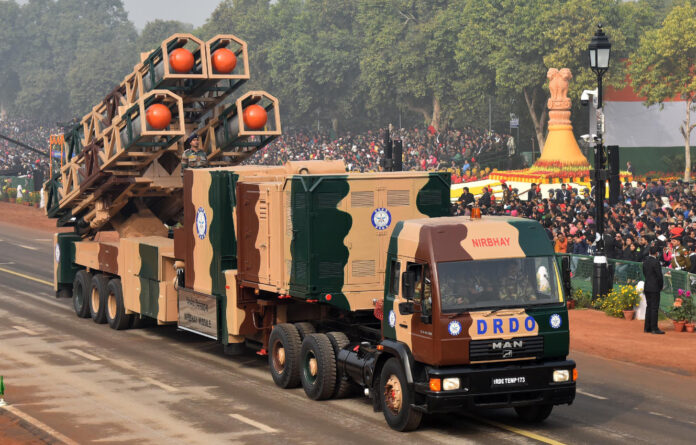Author: Christopher Clary
Affiliation: University at Albany (New York), Non-resident Fellow with the South Asia Program of the Stimson Center (Washington DC)
Organization/Publisher: War on the Rocks
Date/Place: March 17, 2022/Washington DC, USA
Type of Literature: Analysis
Word Count: 1650
Link: https://warontherocks.com/2022/03/the-curious-case-of-the-accidental-indian-missile-launch/
Keywords: Pakistan, India, Nuclear War Risk, Russia-Ukraine War, South Asia, Balakot Crisis
Brief:
Pakistan has tried its best to create noise about India’s nuclear weapons and arms falling into the hands of fascists who have the least concern for international law or the application of nuclear safety regulations. The call for restraint on BJP regime in New Delhi has fallen on deaf ears as the US-led West requires India’s services against “rising” China. Why Islamabad is not being taken seriously is a crisis of its own making, however policies appear to be taking a recourse of late. Taking inspiration from the “accidental” missile attack by India inside Pakistan, the author looks at India’s safety and security procedures of its arsenal. South Asia, home to the world’s second largest population is surrounded by three nuclear-armed countries – China in the north, Pakistan and India downside. And the region is a nuclear flash, unlike North and South Koreas which have maintained silence across border for decades—with rare cross firing by Pyongyang, especially seen as responses to alleged provocation from the US through Seoul. India and Pakistan host a large number of nuclear arsenal and in a race to challenge China, New Delhi, interestingly, receives arms from the US as well its arch rival Russia. The US is so desperate for India that it has remained undecisive whether to sanction New Delhi for its buying the S400 air defense system from Moscow. On March 9, a cruise missile was launched from India which fell in Mian Channu, almost a city 100 km inside Pakistan. The missile, capable of carrying a nuclear warhead, took a flight of around seven minutes, of which it flew inside Pakistan for 3.34 minutes. Pakistan military claimed it was following the missile since it was fired. India chose to remain mum for two days – a violation of bilateral and international agreements – until after Pakistan military revealed the whole operation. India then termed it an “accident”. This “accident” not only risked a war with Pakistan, but the missile also endangered the local Indian population and the international air traffic.
By: Riyaz ul Khaliq, CIGA Non-resident Research Associate




